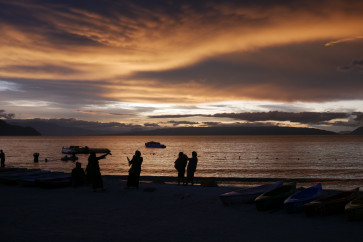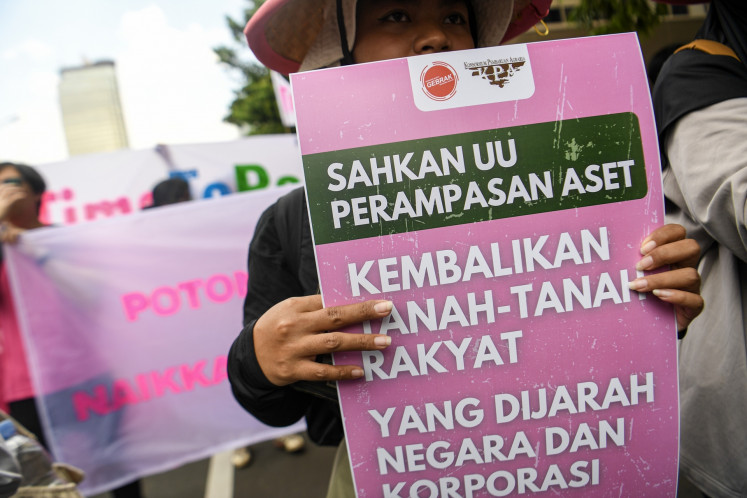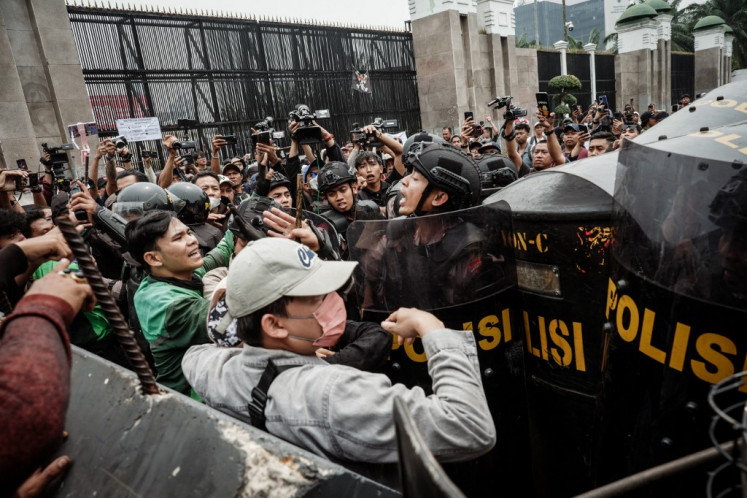Popular Reads
Top Results
Can't find what you're looking for?
View all search resultsPopular Reads
Top Results
Can't find what you're looking for?
View all search resultsGovernors vow to reduce deforestation
The Indonesian members of the Governorsâ Climate and Forest Task Force (GCF) have agreed to run three strategic actions in implementing the Rio Branco commitment to reducing deforestation by 80 percent by 2020
Change text size
Gift Premium Articles
to Anyone
T
he Indonesian members of the Governors' Climate and Forest Task Force (GCF) have agreed to run three strategic actions in implementing the Rio Branco commitment to reducing deforestation by 80 percent by 2020.
The GCF is a multinational initiative that involves 29 regions in Brazil, Indonesia, Ivory Coast, Mexico, Nigeria, Peru, Spain and the US in an effort to curb emissions from rural development and deforestation.
Indonesia is represented by the governors of six provinces: Aceh, West Kalimantan, Central Kalimantan, East Kalimantan, West Papua and Papua.
'We hope that by 2020, deforestation can be reduced by 80 percent,' West Kalimantan Governor Cornelis said in his presentation to the GCF meeting in Jakarta on Wednesday.
According to him, the six provinces have agreed to reduce their rates of deforestation from an average of 323,749 hectares per year to an average 64,749 ha in 2020.
He added that only standing forests are capable of removing greenhouse gases from the atmosphere, helping to reduce global warming.
To achieve the goal, the governors attended a one day meeting in Jakarta on Tuesday that was also attended by neighboring countries' representatives and Environment and Forestry Ministry representatives to discuss strategic actions.
Cornelis reported after the meeting that the governors had agreed on three strategic actions.
The first action is strengthening existing Integrated Forest Management (KPH) and controlling the land use and licensing; the second is developing partnerships with the private sector to ensure commodity supply chains are environmentally friendly; and the third strategic action is ensuring that low-emissions rural development benefits indigenous people and small-scale farmers in forest areas.
The Environment and Forestry Ministry's director general for climate change Nur Masripatin said that the ministry is supporting the six governors' initiative to join the GCF.
'We really appreciate the initiative, and we hope that the governors can also cooperate with the central government in protecting the country's forest,' Nur said.
Meanwhile, Greenpeace Indonesia forest campaigner Yuyun Indradi, is less optimistic about the possibility of reducing deforestation by 80 percent by 2020. 'Ideally the governors should aim for zero deforestation in 2020,' Yuyun said.
He added that, in the country's current development paradigm, the governors' commitment to reducing deforestation should be questioned.
Now, more than 25 percent of the world's tropical forests are in GCF states and provinces, including more than 75 percent of Brazil's forest and more than half of Indonesia's.
Besides reducing deforestation by up to 80 percent, the Rio Branco commitments also include ensuring that incentives or assistance given by donor countries is allocated to helping forest-dependent communities, small-hold farmers and indigenous people.
According to the GCF Indonesia Secretariat officer Bernadinus Steny, the organization carried out campaigns to attract more provinces in Indonesia to join the GCF.
'We also always promote the GCF in national and international forums,' Bernadinus said. (ind)










